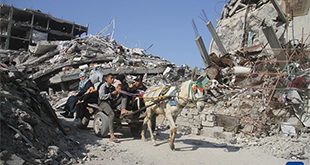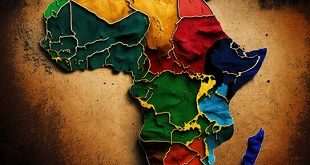
The things that democracy (and pseudo democracy) evangelists need to know about freedom and liberty
THE LAST WORD | ANDREW M. MWENDA | So another military coup has taken place in Mali removing an unpopular yet democratically elected government of President Ibrahim Keita. Keita came to power as an opposition firebrand in 2013, after a military coup had overthrown President Amadou Toure. His promises turned out to be pipedreams. The people, tired of corruption and incompetence, have been demonstrating for months, leading to an army mutiny and coup. The Mali coup is popular with “the people” (meaning those angry urban youths and intellectuals we see screaming on the streets). However, the UN, AU and ECOWAS have rejected it and have imposed sanctions on the country.
Given the naivety of many democracy (and pseudo democracy) evangelists in Africa, it is important to give a brief historical background of this nation’s troubled democratic experiment. Toure was the military man who led the coup against long serving “dictator” President Muassa Traore (1968-1991). After the coup, he did not stay in power long. He freed political parties and organised a national conference. It wrote a constitution with “democratic safeguards” like the proverbial term limits, which in Africa are assumed to guarantee peaceful transition of power.
One year after assuming office, Toure organised elections in which he did not participate. Alpha Konare was elected president. A nice and jovial man (I met him in 1997 on my first and last visit to that troubled country), Konare respected term limits. In 2002, as he was retiring, the respected Toure ran for the presidency and won. The world began to consider Mali a “successful democracy.” Articles were written, books published, lectures given and television interviews aired about “democratic consolidation” in Mali.
Fast forward, in 2012 a Tuareg rebellion erupted in Northern Mali, precipitating heightened opposition to Toure’s rule, which was coming to an end. The rebels captured the northern region and declared independence. A military upstart, Amadou Sanogo, staged a coup, which was welcomed by opposition groups led by Keita. It took the intervention of French troops to end the rebellion.
The collapse of Mali’s democratic experiment was itself a result of foreign efforts to enforce democracy in Libya where the overthrow of Muammar Gaddafi left gun stores open. Toureg rebels got access to these weapons and used them to launch their rebellion. An effort to promote democracy in one country led to state collapse in two. Nonetheless, and fortunately for Mali, the soldiers organised elections in 2013 that brought Keita to power. He was reelected in a hotly contested second round in 2018.
The lessons from this Mali story are simple but fundamental. In his 1968 masterpiece, Political Order in Changing Societies, American political science professor, Samuel Huntington, argued that the most important political distinction among countries is not their form of government but their degree of government. The form of government is not the only important thing about a country, not even the most important – passionate though we may be about this. For instance, the distinction between order and anarchy is much more fundamental than one between democracy and dictatorship. Even before talking about democratic consolidation in Mali, we need to talk about state consolidation.
 The Independent Uganda: You get the Truth we Pay the Price
The Independent Uganda: You get the Truth we Pay the Price




People confuse politics with football and in fact are more tolerant of each other in football than they are in politics. What we have here is thirst for power and higher pay.
When that musician sang, muzei bizeemu, we got so lost in the humor, indignation and evasive rhetoric (pardon my misuse of the word), that we lost all the actual parallels that could be drawn.
People were being killed. Not by state admittedly but none the less, it was back. There were kidnappings and safe houses have made a return. Back then, our parents used to brag about being, ”permanent and pensionable”, when talking about working for government. Now it is pensionable and somewhat permanent if you play your cards right.
What I am trying to say is we have come full circle. The revolution is a success!!
My younger generation grew to look with scorn at government jobs but now in this time of COVID, those “permanent and pensionable” jobs are the only certainty.
Everyone is not only trying to get in but many are trying to control who gets in.
We have lost touch or sight of what’s really important for uganda today and uganda tomorrow. We are fixated on what we want today.
Today we see people more focused on removing President Museveni than looking at what they want to replace him with. It’s a lie we believe and keep on believing.
When we consider the three things you mentioned earlier: the people willing to accept the vision, people willing to defend the vision, and the ability to carry out the requirements to deliver on said vision , you find that the best candidates score at best two out of three.
No body articulates the requirements or shares a plan.
A mere mosquito or errant sneeze from a peon could, god forbid, achieve the visions most people espouse. Heck even a simple tumble down the steps!!!
The problem isn’t leadership. It’s the sheep.
So Mr Mwenda, in your opinion you seem to suggest that UN, AU, & ECOWAS plus many other observers and political commentators shouldn’t have “hurried” to congratulate and welcome Mali for that brief period when they transited from military coups to democratic elections! Just like a newly born child, ordinarIly, the family and community at large welcomes that child with warm hands; but no one ever knows how that child will progress in life because along the way it could be attacked by polio, tetanus, measles or even any kind of accident thereby causing unforeseen deformities! Does that disprove the family, friends and the community who welcomed this otherwise innocent child born free of such deformities? I find it fascinating when you despise democracy and it’s proponents who you often casually refer to as “pseudo democrats” but at the end you never suggest that best alternative to it! You again naively ridicule presidential term limits in Africa as not enough safeguards for democracy; ask the people of Kenya, Tanzania, Ghana, Nigeria, Liberia, Sierra Leon, Zambia, Malawi, South Africa, Cape Verde etcetera, whether they are reaping any democratic benefits accruing from presidential term limits in their respective constitutions or, not!
A good analysis however am of the view that examples and experiences from western scholars do not aptly capture the process of democracy I would suggest that you look at the Indian model to capture the situation in Africa. Thanks.
I am resigned to the biblical teaching that “all leadership comes from God” just imagine the advantages COVID-19 has bestowed on the incumbent in the run up to 2021 elections!Let the man rule until he is tired, in the meantime we shutup and just “make lemonade”
1. France and Belgium did not do a thorough job during colonization actually most of the nations they colonized like Mail,Congo,Central African Republic,Rwanda are a total mess actually the common wealth nations in Africa received a better deal especially in the economic and social sectors.
2.Most of the territories of the former french colonies in Africa are a fertile ground for wars because they have rich minerals which are in areas controlled by warlords who are funded by the French government;actually the French soldiers have enjoyed themselves in that at times the French soldiers even crown Beauty Queens.
3.I like the way South Africa has surrendered democracy to Africans coz they know thats their territory while the economy is managed by the whites.I find this a good thing coz the economy of S.Africa is not affected by politics.
4.Uganda is not so economically stable because we dont have companies and individuals who can hold the country economically at ransom incase of war unlike Kenya,Nigeria and South Africa.
5.Africans have now discovered the formular for democracy i.e numbers matter;this is a bad mentality coz the educated,civilizied are fewer compared to the less privileged;big headed,indiscipline chaps;this begs the question how do we create a middle ground for the rich and poor?what will they bring to the table despite their lack of exposure?( They dont even know that there are golf shoes)Can we develop a policy that caters for the poor to participate in policy formulation?